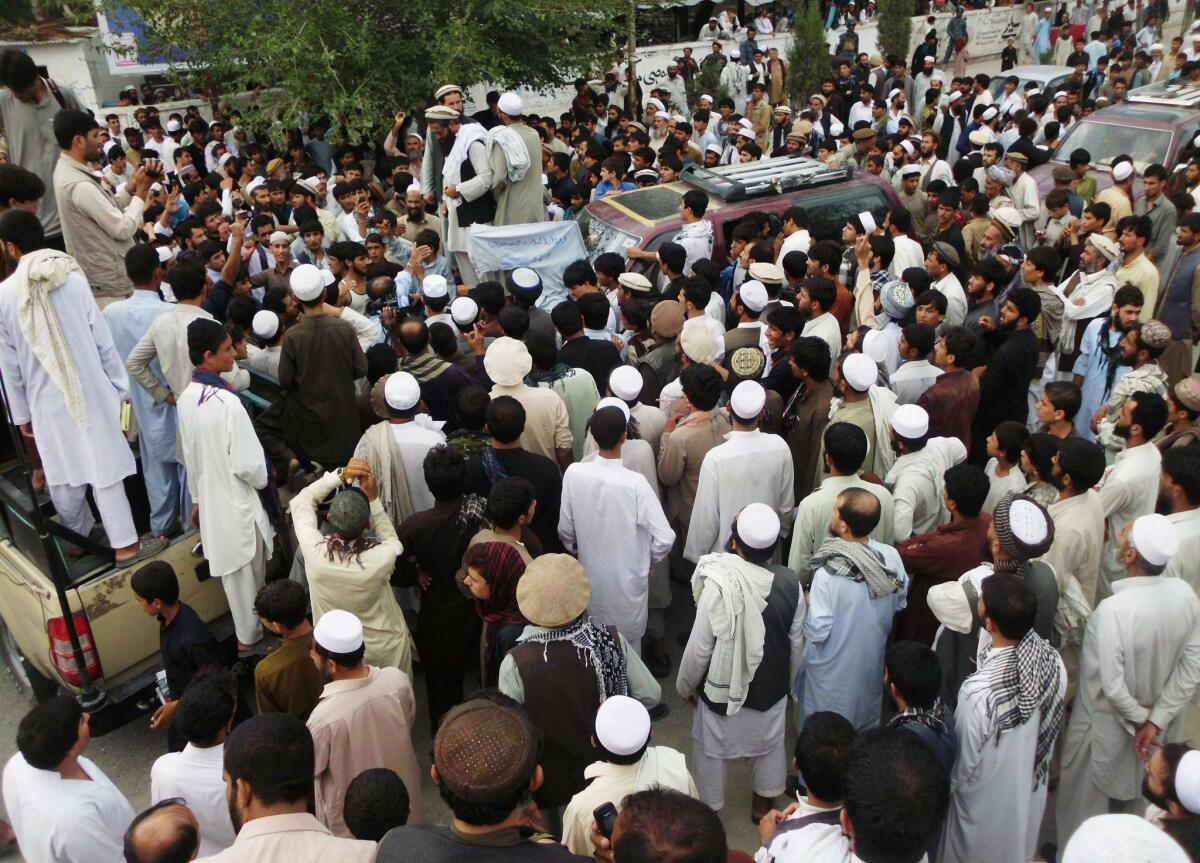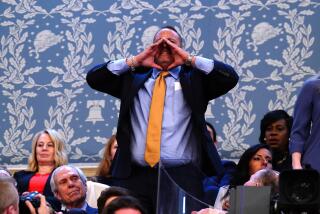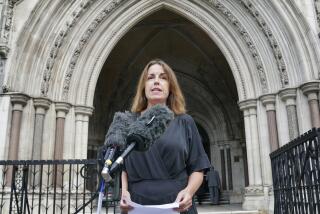Human rights group slams U.S. over Afghan civilian deaths

A new Amnesty International report criticizes the U.S. government for not properly investigating civilian casualties its forces inflicted in Afghanistan.
The report, called “Left in the Dark” and released at a Kabul news conference on Monday, calls on the United States to investigate and prosecute those responsible for the civilian deaths. Several of the cases could constitute war crimes, the report said.
Speaking at the Kabul Star Hotel, Horia Mosadiq, chief Afghanistan researcher for the London-based human rights group, said only two of the 125 Afghan eyewitnesses whom Amnesty International spoke with were interviewed by U.S. military investigators.
In total, the report found evidence of more than 1,800 civilian casualties inflicted by foreign forces between 2009 and 2013.
The U.S.-led international coalition in Afghanistan, known as the International Security Assistance Force (ISAF), issued a statement responding to the Amnesty report. Without specifically addressing the charges, the statement said there had been “a significant reduction in ISAF-related civilian casualties” -- 77% in the last year.
It added that the coalition “thoroughly investigates all credible reports of civilian deaths and injuries when tactical circumstances allow, and conducts after-action reviews to determine the specific circumstances of each event.”
The statement blamed the Taliban for 90% of civilian casualties this year, and concluded: “Protecting innocent Afghan civilians is a cornerstone of ISAF’s mission.”
Mohammad Saber, one of those interviewed for the Amnesty report, attended the group’s news conference, recalling a night four years ago when U.S. forces raided his family home in the eastern city of Gardez.
The music, singing and dancing to honor a new birth in the family had just ended when a night raid claimed the lives of his two brothers, sister, wife and niece, he said.
“It was such a happy occasion until the U.S. killed five innocent people,” Saber told the Los Angeles Times.
Initially, when family members heard the commotion, he said, they thought it was the Taliban looking for Saber’s brothers, Mohammad Daoud and Mohammad Zaher, both of whom worked for the government.
Saber said Daoud, a local police commander, was killed after going outside to see what was happening.
“When Daoud was shot, we realized it was the Americans and not the Taliban who had raided our home,” Saber said.
Like all of the other families interviewed in the report, Saber said he tried to seek justice from Washington and Kabul, but received few answers in return.
“We asked questions. We are still asking, but no one ever asked us any questions. Not the U.S. and not [Afghan President] Hamid Karzai,” Saber said as he held a picture of his deceased relatives.
Richard Bennett, Asia Pacific Director at Amnesty International, called for “prompt, thorough investigations” by the United States of the thousands of injuries and deaths inflicted during operations into Afghan homes and villages.
“Currently, a commander decides whether a case will be investigated,” Bennett said.
The Amnesty report calls the U.S. military justice system “deeply flawed.”
Of the 10 U.S. military operations that Amnesty investigated, none were prosecuted. A total of 140 civilian deaths resulted from the operations.
Mosadiq said the Afghan government does have a system of compensation for the victims -- $2,000 per death and $1,000 per injured person -- but that the money did little for families still reeling from lost family members.
Saber said the United States has admitted it acted on “false information.”
“They asked us to forgive them, but we don’t,” he said.
Latifi is a special correspondent.
More to Read
Start your day right
Sign up for Essential California for news, features and recommendations from the L.A. Times and beyond in your inbox six days a week.
You may occasionally receive promotional content from the Los Angeles Times.






